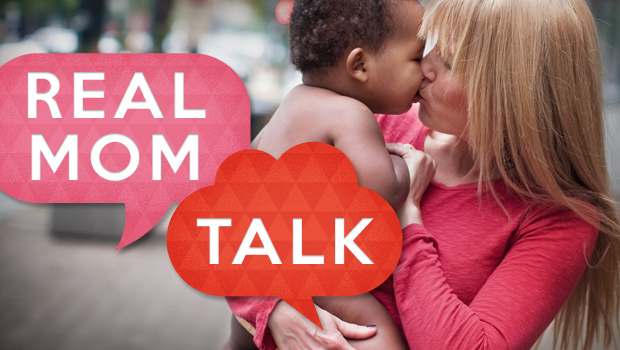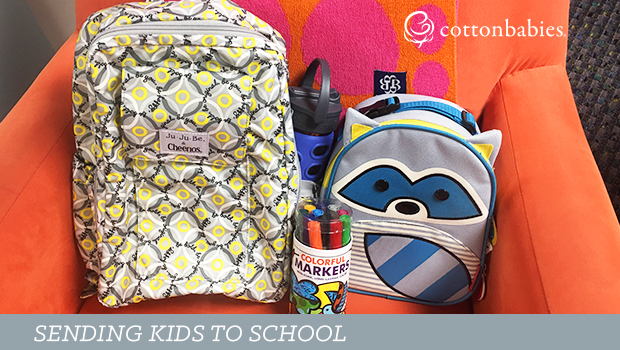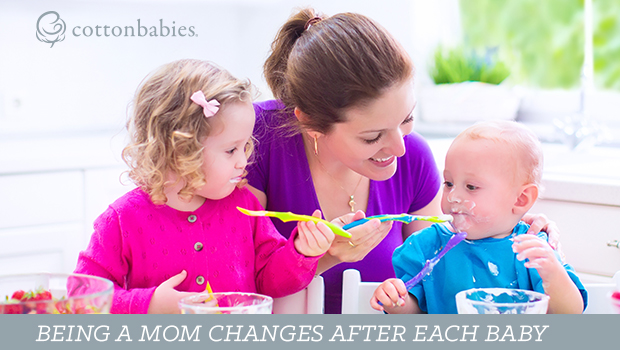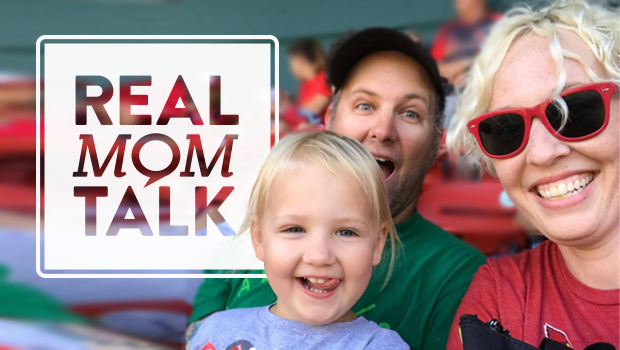Separation Anxiety
June 13, 2012 1:31 pm

Editor’s note: the following blog is meant to share perspective regarding one mom’s experience and inner feelings when dealing with separation anxiety. This content is in no way intended to be instructions of how every family should deal with this situation.
In the world of parenting, there are few phrases more frightening than “separation anxiety.” Frightening, because everyone has an opinion on how it should be handled. Frightening, because grandparents and other well-meaning experienced parents have tips on how they dealt with it. But mostly frightening, because outside of junior high romance, few things in life leave you questioning your every move quite like dealing with a child experiencing separation anxiety.
For some children, it can start as early as six or nine months. I’m told it can go well into the teenage years or even until they leave for college. (Sorry, I know that’s probably not what you want to read right now.) In my personal experience, each child, age and stage requires different tactics. Sometimes it’s just easier to yield to the child and take them along with you. Occasionally, that may not be an option, especially when work is involved.
With four children, I’ve experienced a whole range of emotions and responses. One child was very young when it first set in and truly just wanted mommy more than any other family member. I won’t lie, there’s a little bit of satisfaction in knowing you’re the center of their little world. I opted to just bring that little one along and it eventually worked itself out without any real intervention from me.
For another one of my children, separation anxiety reared it’s ugly head at a much older age. The first few weeks, we tried the same tactics that worked well for their siblings. After several months of this recurring issue, we resorted to using the scientific method to determine whether our hypothesis that we were being played was correct. Using controls and variables, we determined our theory was indeed true. Then we resorted to a blitz style attack to get the child into their regular childcare routine with the minimum amount of drama. Eventually, our drop-off and run tactics worked and the drama was over.
What I noticed was that it didn’t matter whether I soothed the child myself or left the caregiver to distract my child, I always questioned myself. I walked away wondering if I had chosen the correct response. External input never seemed to help soothe my mind either. When you have doubts in your mind and your child is causing a scene, it feels as if all eyes are on you and, of course, judging you. Occasionally hearing the word ‘spoiled’ whispered doesn’t help either.
A few days ago, I had the opportunity to intervene with a crying school-aged child. For the parent, there was no other choice, the child had to stay with us. We did our best to kindly soothe and distract the boy, but even as the father left, I could hear him apologizing and muttering many of the same things that have gone through my own mind. I completely empathized. I didn’t mind helping his son get settled into our routine and he calmed down within 5 minutes of his father leaving. It was just like all the caregivers always reported back to me about my own children. I’m sure I’m not the only one that’s witnessed this being played out time and time again.
A few hours later, I saw a family member sharing her separation anxiety tale on Facebook with other moms weighing in and empathizing. We all face separation anxiety at one time or another. The truth is, there is no magical trick that works every time for every child. Each of us, as parents, has to find out what works best for each of our children.
So my question for you today is this: how do you handle your own internal thoughts and feelings that come from dealing with separation anxiety in your children? How do you soothe your own heart and mind after a separation anxiety episode?




Comments
6 Comments
I think the most important thing is to have patience. That may sound like an understatement but it really is the most important thing. My son (third child) had trouble with this for years and occasionally he’ll still have some instances when he’s feeling a little insecure and just wants to hang out with mom or dad (he’s almost 8). Some kids are just more shy around strangers than others and I think that forcing those who face an extreme struggle to do it anyway can be harmful. You are the parent and are supposed to protect them and when you force them to do something that terrifies them you damage the trust you should be building. Some kids do not have such severe reactions to being left and it’s okay to “feel it out” to see which you are dealing with. All of my kids have had a little trouble being left in a strange place without mom or dad (like the church nursery) but my son’s issues lasted for years and each time we would try it again, he would freak out. So, we just kept him with us, or, when possible, we let him go with his brother or sister so he wasn’t alone with people he didn’t know. I always tell new parents to trust their instincts. You have to go with what you feel is right or you’ll always feel guilty and that’s just not something we need as parents! Do what you and your spouse feel is the best thing for you child and don’t let anyone else guilt you into second guessing yourself.
That last line says it all, and, honestly, I think that’s the best parenting advice you can give for ANY situation. You have to know your kid.
My 18-month-old has pretty bad separation anxiety lately, which I know is typical. If I leave, she clams down quickly, but if I try to do warm-ups with my running club while she’s chilling in the jogging stroller and can see me — forget it. She loses it until I pick her up and cuddle her. I am just feeling my way through it at this point, but that’s parenting, right?
My 4 year old has been crying everytime I leave her. I just recently bought her a transition toy that is only for when I leave. It is squish and cute with textures and very desirable. She plays with it on the way to preschool or whereever she is going to be . That way the anxiety does not have a chance to build. She does cry at times but settles after two minutes. She has to put the toy away after I leave a few minutes later and then gets a sticker on her chart which she can use to go on a special date with me.
I suppose the biggest comfort is that separation anxiety is a GOOD sign of healthy attachment and emotional development. That makes me feel better, even though the separation is hard.
Could someone also please comment about how to deal with in-laws and other family members that seem to treat my 4 month old’s newly-set-in separation anxiety as somehing I have control over, as if I am somehow intentionally convincing my baby that mommy is better than them? It’s not an explicit response from them, but that’s the underlying attitude now and it’s even harder to deal with than the separation anxiety. Thanks for any help.
We are so there RIGHT NOW and going on 3 months. I am at a complete loss as to how and improve the situation. It’s really overwhelming. I am interested to see others responses.